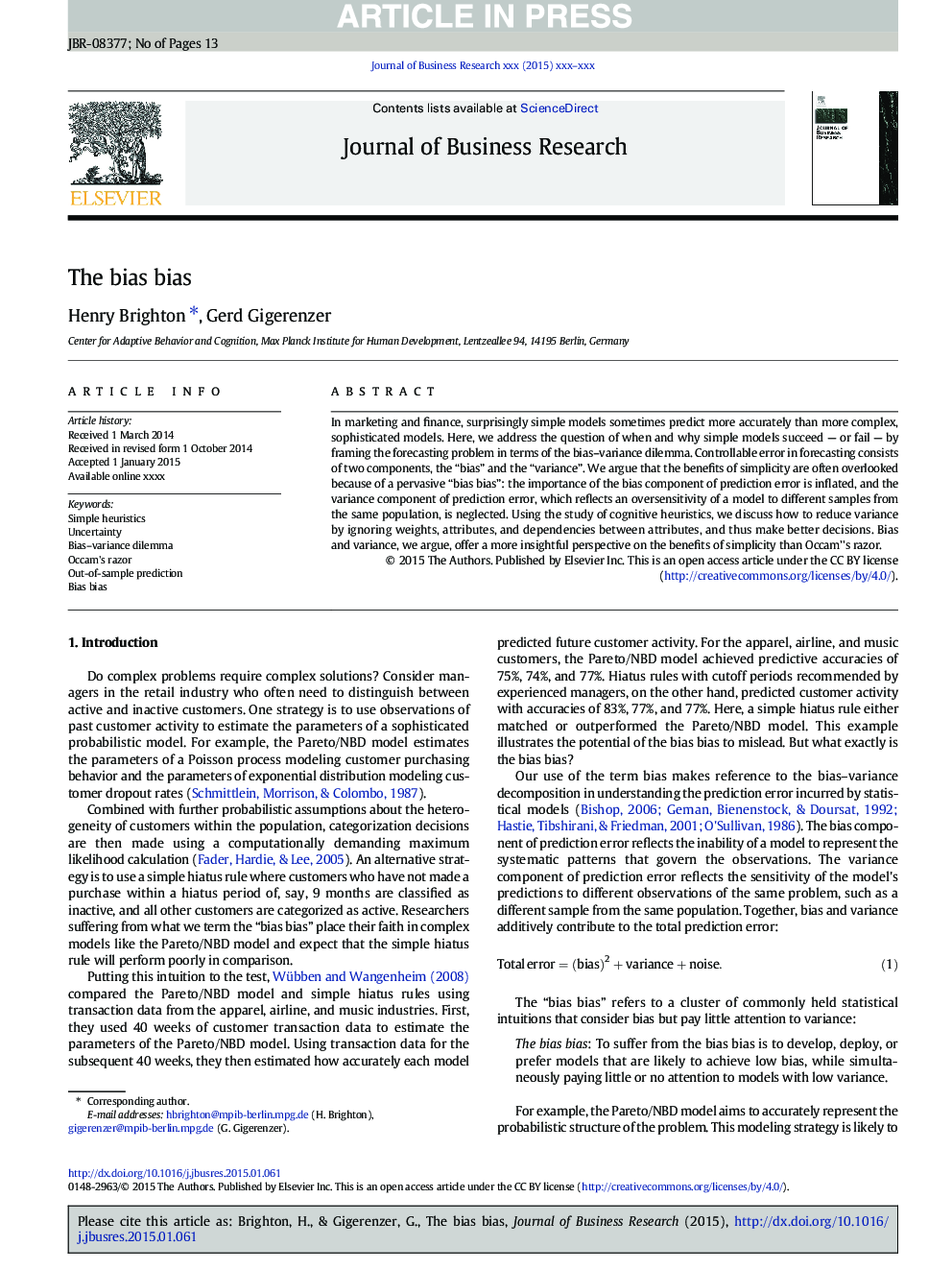| Article ID | Journal | Published Year | Pages | File Type |
|---|---|---|---|---|
| 10492989 | Journal of Business Research | 2015 | 13 Pages |
Abstract
In marketing and finance, surprisingly simple models sometimes predict more accurately than more complex, sophisticated models. Here, we address the question of when and why simple models succeed - or fail - by framing the forecasting problem in terms of the bias-variance dilemma. Controllable error in forecasting consists of two components, the “bias” and the “variance”. We argue that the benefits of simplicity are often overlooked because of a pervasive “bias bias”: the importance of the bias component of prediction error is inflated, and the variance component of prediction error, which reflects an oversensitivity of a model to different samples from the same population, is neglected. Using the study of cognitive heuristics, we discuss how to reduce variance by ignoring weights, attributes, and dependencies between attributes, and thus make better decisions. Bias and variance, we argue, offer a more insightful perspective on the benefits of simplicity than Occam''s razor.
Related Topics
Social Sciences and Humanities
Business, Management and Accounting
Business and International Management
Authors
Henry Brighton, Gerd Gigerenzer,
